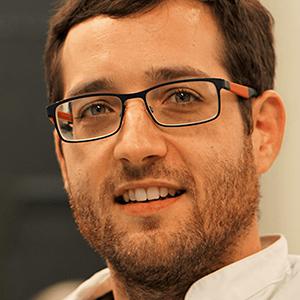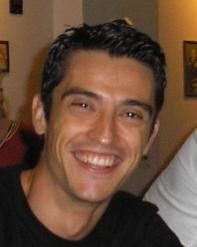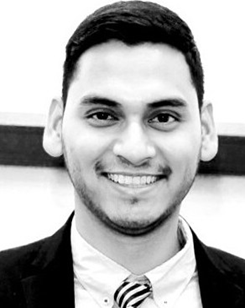Latest news
ICRM 2024

We are thrilled to announce the return of ICRM ! Don't miss this opportunity to join us in Soesterberg, The Netherlands, June 24-27. Please register and submit your abstract here: https://icrm2024.com
DCS PhD Spotlight sessions - Third session
We are excited to announce the Third DCS PhD Spotlight sessions, the third of a series of free online seminars where PhD students will present their work. This third session will held on-line via Microsoft Teams on Thursday December 1st from 12:00-13:00 CET. The presenters are Sonja Katz (Wageningen University), Denice van Herwerden (University of Amsterdam), and Andrea Carnoli (Radboud University). More details here.
DCS PhD Spotlight sessions - Second session
We are excited to announce the Second DCS PhD Spotlight sessions, the second of a series of free online seminars where PhD students will present their work. This second session will held on-line via Zoom on Thursday May 12th from 12:30-13:30 CET. The presenters are Mark Schoot (Radboud University Nijmegen, NutriControl Analytical Solutions) and Jeroen van Duijvenbode (Delft University of Technology). More details here.
DCS PhD Spotlight sessions - First session
We are excited to announce the new DCS PhD Spotlight sessions, a series of free online seminars where PhD students will present their work. The first Spotlight session will held on-line via Zoom on Friday April the 1st from 12:30-13:30 CET. The presenters are Roel van der Ploeg (University of Amsterdam) and Pieter Dekker (Wageningen University and Research). More details here.
DCS PhD Spotlight sessions 2022
As a consequence of the Covid pandemic, most of the scientific conferences and events have followed a short online format with few keynote talks in the program. While this has still allowed professionals and renowned scientific speakers to share their research, PhD students had less opportunities to present their work and get valuable feedback from the scientific community during their first steps in academia.
As it will still take some time to get back to the pre-pandemic situation in international traveling and face to face events, The Dutch Chemometrics Society would like to provide PhD students a platform to share their research around Chemometrics and related disciplines.
For this reason we are excited to announce the new DCS PhD Spotlight sessions, a series of free online seminars where PhD students will present their work.
The first Spotlight session will held on-line Friday April the 1st from 12:30-13:30 CET.
Program:
- Talk 1: Data integration of oral microbiome and metabolome data using PARAFAC, by Roel van der Ploeg (Swammerdam Institute for Life Sciences, University of Amsterdam)
- Summary: Dental plaque is a biofilm and an important indicator of oral health. Its formation is caused by the establishment of a local bacterial community that connects to the tooth surface using physico-chemical interactions. If not removed by good brushing, dental plaque can accumulate and mature, thus leading to the development of gingivitis: inflammation of the gums. In some people, the development of gingivitis goes much faster and to a greater severity than in others. However, not much is known about the link between gingivitis severity and the oral microbiome and metabolome. A cohort of 41 individuals were subjected to a two-week gingivitis intervention, in which they were not allowed to brush their teeth. Microbiome samples were taken at multiple sites in the mouth, before, during, and after the intervention period. Metabolome samples were collected from saliva only during the intervention period. Hence we have obtained two multiway datasets with modes in the individual, measured variable, and time directions. In this study, we aim to connect the microbiome and metabolome by searching for common patterns using PARAFAC, a multiway decomposition method. PARAFAC decomposes a dataset into components with a loading vector for each mode. By comparing these components between the microbiome and metabolome data blocks, we can search for commonalities for example in the time profile loading. This way we aim to find connections between microbial species and metabolites that show a similar response to the gingivitis intervention over time.
- Talk 2: Human milk proteins and allergy of mother and child: exploring differences at the univariate and network level, by Pieter Dekker (Department of Agrotechnology and Food Sciences, Wageningen University and Research)
- Summary: The human milk proteome comprises a vast amount of proteins with immunomodulatory functions, but it is not clear how this relates to an allergy of the mother or allergy development in the breastfed infant. In this study, we aimed to explore the relation between the human milk proteome and allergy of both mother and infant. We analyzed proteins in a selection of 300 human milk samples from the Canadian CHILD Cohort Study. In the analysis of the data, univariate, multivariate, and network analyses were employed to explore relations between the different groups of allergy statuses.
The session will be streamed online via Zoom platform, will last around 1 hour, and is free of charge. You do not need to register for this event. The Zoom link f will be shared the same day of the event via e-mail to all those who are subscribed to the Dutch Chemometrics Society mailing list. You can subscribe to the DCS mailing list here.
If you are a PhD student and want to present your work or if you are PhD supervisor and you think one of your student may be interested feel free to send us an email at
We hope you will join and help us put PhD students in the Spotlight again!
Second DCS PhD Spotlight session 2022
The Dutch Chemometrics Society (DCS) is excited to announce the second DCS PhD Spotlight session, in which the presentations will be related to NIR data analysis.
The second session will be held on May 12th (Thursday) from 12:30-13:30.
Program:
- Talk 1: Predicting the performance of handheld near-infrared sensors from a master benchtop device, by Mark Schoot (Radboud University Nijmegen, NutriControl Analytical Solutions)
-
Many industries see a shifting focus towards performing on-site analysis using handheld spectroscopic devices. Myriad handheld solutions with very different specifications and pricing are available on the market. Although specifications are generally available for new devices, this does not directly quantify or predict how available devices will perform for targeted cases. We present a novel chemometric method to estimate the prediction performance of handheld NIR hardware and apply it to estimate the performance of two commercially available handheld NIR technologies in predicting protein content in pig feed from existing data of a benchtop device. Our method utilizes information on the error structure of the handheld devices for the estimation. It yielded performance estimates differing less than 1 g kg-1 from the experimentally determined handheld performances and similar model parameters. Our method was effective for linear and nonlinear calibration algorithms, also when estimating performance after averaging multiple scans. Overall, our method provides estimates of the performance of a handheld device for a specific task with minimal testing required and can thus be used as a device or application screening tool before committing to develop calibrations.
-
- Material Fingerprinting in the Mining industry – Clustering of VNIR–SWIR and geochemistry data, by Jeroen van Duijvenbode (Delft University of Technology)
-
Within the mining industry, a lot of spectral and geochemical data is collected from rock samples to indicate the properties of the different styles of mineralization in an orebody. The quantity of these data increases rapidly during the daily operations of a mine since every one-meter composite sample is tested. This presentation will focus on interpreting these large (combined >250,000 samples) multivariate datasets using compositional data analysis, principal component analysis and clustering in two parts. The first part will focus on VNIR-SWIR data and the second part combines this with the geochemical data. Commonly, VNIR-SWIR data are analyzed by extracting specific absorption features, however, this way, not all potential value is extracted from the spectral responses, as will be shown. In this study, we clustered spectral range values and, using this found a new spectral feature region related to epidote not recognized before. Furthermore, within a spatial contextual relationship, it was found that this epidote feature also relates to the rock hardness, which is important during the crushing and grinding of rocks to extract gold.
-
The session will be streamed online via Zoom platform, will last around 1 hour, and is free of charge. You do not need to register for this event. The Zoom link will be shared the same day of the event via e-mail to all those who are subscribed to the Dutch Chemometrics Society mailing list. You can subscribe to the DCS mailing list here.
If you are a PhD student and want to present your work or if you are PhD supervisor and you think one of your student may be interested feel free to send us an email at
We hope you will join and help us put PhD students in the Spotlight again!
More about the DCS PhD Spotlight sessions
As a consequence of the Covid pandemic, most of the scientific conferences and events have followed a short online format with few keynote talks in the program. While this has still allowed professionals and renowned scientific speakers to share their research, PhD students had less opportunities to present their work and get valuable feedback from the scientific community during their first steps in academia.
As it will still take some time to get back to the pre-pandemic situation in international traveling and face to face events, The Dutch Chemometrics Society would like to provide PhD students a platform to share their research around Chemometrics and related disciplines.
For this reason we are excited to announce the new DCS PhD Spotlight sessions, a series of free online seminars where PhD students will present their work.
DCS Conference on Image Analysis in Medicine
New date! The Dutch Chemometrics Society organizes an online Conference on Image analysis in Medicine on June 29 at 14.00 CET.
Speakers: Dr. Benjamin Balluff, Assitant Professor, Maastricht MultiModal Molecular Imaging institute (M4I), Maastricht University, the Netherlands (talk title: Data analysis in Mass Spectrometry Imaging) and Dr. Leonard Wee, Assistant Professor, Clinical Data Science; Maastro Clinic, Maastricht, the Netherlands (talk title: Using large-scale imaging data for quantitative analysis).
Date will be announced shortly.
For more information and to register please click here! Partecipation is free!
DCS Conference on Image Analysis in Medicine 2021
Tuesday 29 June 2021 - 14:00 CET
Zoom online meeting
The Dutch Chemometrics Society (DCS) is excited to announce a half-day free online conference on Image Analysis in Medicine. The conference will feature two experts on image analysis: Dr. Benjamin Balluff, Assistant Professor, Maastricht MultiModal Molecular Imaging institute (M4I), Maastricht University, the Netherlands and Dr. Leonard Wee, Assistant Professor, Clinical Data Science; Maastro Clinic, Maastricht, the Netherlands.

Benjamin Balluff studied bioinformatics at the Weihenstephan University of Applied Sciences, Germany. Afterwards he did his PhD at the Institute of Pathology, Helmholtz Zentrum Muenchen, Germany, to search for biomarkers in gastric cancer using mass spectrometry imaging (MSI). During his PostDoc time at Leiden University Medical Center he focused on the analysis of MSI data to describe intra-tumor heterogeneity. In 2015, he became Assitant Professor for Imaging Bioinformatics at Maastricht University where he strives for advancing MSI in terms of single cell analyses and integration with other omics technologies.
Talk title: Data analysis in Mass Spectrometry Imaging.
* * *

Leonard Wee is qualified and accredited radiation oncology medical physicist, presently assistant professor in Clinical Data Science at MAASTRO Clinic/UM/MUMC+. His current research question involve use of large scale and geographically dispersed clinical medical imaging data (such as CT, PET and MRI scans) derived from real-world cancer cases to develop prognostic and predictive clinical outcome models.
Talk title : Using large-scale imaging data for quantitative analysis
Conference Registration
To register to the conference please subscribe at the maiiling list of the event at the bottom of the page! Participation is FREE.
The conference will be held through the Zoom online meeting platform. The link to the Zoom event will be shared on the date of the event.
Credits and certificate of attendance
For (PhD) students: this conference is worth 0.3 ECTS credits. Instruction on how to obtain the certificate will follow.
Sponsor
This event is kindly sponsored by the Institute for Molecules and Materials of Radboud University.
DCS Conference on Image Analysis in AgroFood Industry
The program of the upcoming DCS Conference on Image Analysis in AgroFood Industry has been announced! Please check the DCS Conference page DCS Conference on Image Analysis in AgroFood Industry for more details.
Deadline for registration: April 12, 2021!
DCS Conference on Image Analysis in AgroFood Industry 2021
April 13, 2021
Zoom online meeting
14.00 (CET)
The Dutch Chemometrics Society (DCS) is excited to announce a half-day free online conference on Image Analysis in AgroFood Industry. The conference will feature two renown experts on image analysis: José Manuel Prats-Montalbán and Puneet Mishra.

José Manuel Prats-Montalbán is Associate Professor at the Department of Applied Statistics of the Polytechnic University of Valencia (UPV) since 2010. He finished his studies in Industrial Engineering in 1998, joining the labor market as a quality engineer and consultant in quality systems. In 2000, he joined the Polytechnic University of Valencia, finishing his Ph.D. Thesis "Statistical Control of Processes by means of Multivariate Analysis of Images" in September 2005, under the supervision of Professor Alberto Ferrer. This thesis constitutes the basis of his research lines in multivariate analysis of images, related to Magnetic Resonance Medical Image Analysis and Image Analysis for Industry 4.0. At the DCS conference he will talk about “Multivariate Image Analysis: basics and applications in AgroFood Industry”.

Puneet Mishra works as a researcher in advanced sensing technologies and chemometrics at Wageningen Food and Biobased Research, The Netherlands. He holds a PhD in pure and analytical chemistry from the center for process analytics and control technologies (CPACT), UK. During his PhD, he was a Marie Curie Fellow for the H2020 ITN called ‘MODLIFE’ which aimed at developing advanced data modelling tools for process and product industries. He has more than 42 research articles. He has won several prestigious awards in the domain of process analysis and chemometrics. Recently, he won two times in the row i.e. 2020-2021, the young chemometrician award from the ‘French Chemometrics Society’. His interest includes non-destructive sensing, chemometrics and artificial intelligence. He is looking forward to welcoming you to his talk on “Close range hyperspectral imaging of agricultural plants”.
Conference information
The conference will be held through the Zoom online meeting platform. The link to the Zoom event will be shared after registration. To register, please send an email to our secretary Lidia Esteve Agelet via
A detailed program for the conference is available here.
Credits and certificate of attendance
For (PhD) students: this conference is worth 0.3 ECTS credits. If you require a certificate of attendance, please let us know during the registration phase.
Sponsor
This event is kindly sponsored by the Institute for Molecules and Materials of Radboud University.
Scientific committee
The scientific committee of the DCS is responsible for keeping the academic level of lectures, workshops, masterclasses, etc. up to a high standard. They are therefore also involved in setting up the program and speakers for our conferences, such as ICRM.
Scientific committee members
The scientific committee is currently formed by Paul Eilers (chair), Age Smilde and Lutgarde Buydens.
